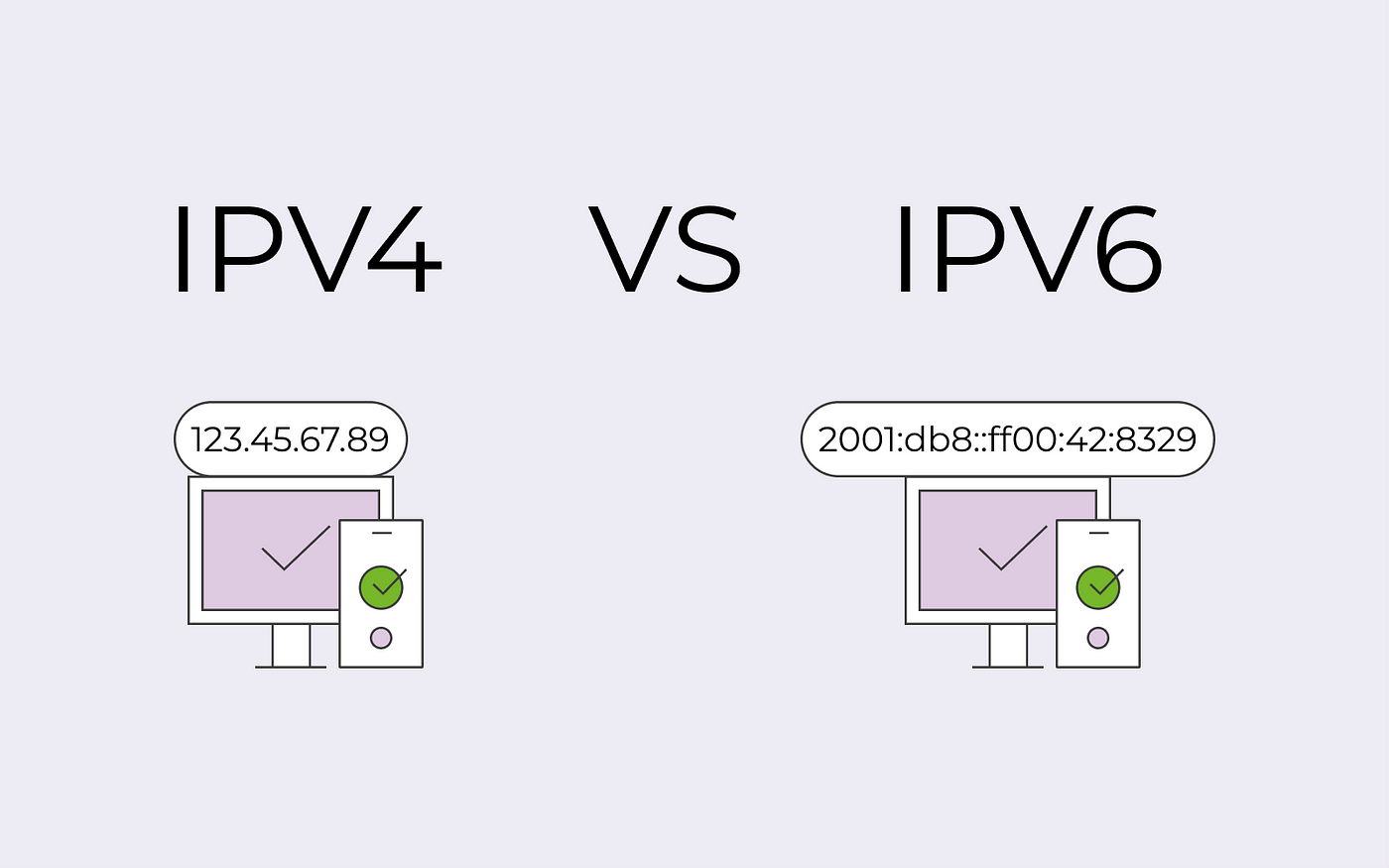Every device connected to the internet has a unique label called an IP address. It helps identify and locate devices so that data is easy to send and receive correctly. There are two main types of IP addresses: IPv4 and IPv6. IPv4 has been around for decades, while IPv6 is the newer version available to handle the growing number of online devices. Knowing the difference between them is essential, especially for businesses or individuals setting up networks. In this guide, we will compare IPv4 vs IPv6 address to help you understand their key features and decide which one fits your needs best.
Understanding Between IPv4 vs IPv6 Address
The internet has two kinds of addresses, IPv4 vs IPv6 address, which help identify devices on the internet. IPv4 is the first version. It has the address length format of 32 bits, addressing fewer than 4.3 billion addresses. This is relatively low in comparison to how fast the internet is expanding. IPv6 has a 128-bit format that offers virtually an unlimited number of addresses.
IPv6 also features better security, processing and network efficiency. Some of the networks are switching to IPv6 for future growth, even though IPv4 remains popular. Knowing the two would enable businesses to keep up with the times and experience easy online communication. IPv6 migration is a clever measure to a new, secure and scalable digital infrastructure.
Key Differences Between IPv4 and IPv6 Addresses
Address Format
IPv4 uses a numeric format in its representation of four numbers separated by a dot (e.g. 192.168.0.1). IPv6 instead is a 128-bit hexadecimal display. It reads 8 x 4 hexadecimal digits (e.g. 2001:0db8:85a3:0000:0000:8a2e: 0370:7334). This increases the complexity of IPv6 and makes it so much larger.
Address Availability
IPv4 can interface with 4.3 billion addresses, most of which are already occupied. In its turn, IPv6 can provide more than 340 undecillion addresses. This huge addition eliminates the problem of address exhaustion by IPv4 and future scalability of objects can connect across the globe.
Speed and Performance
IPv6 is comparatively fast and quite effective in comparison to buy IPv4 address. The features of IPv6 are to make the network less congested. It decreases the latency with simplified packet headers and Quality of Service (QoS) support implemented into it. This will enable smooth streaming of videos, playing games and cloud services.
Security Features
IPv6 has been set up in such a way that it is secure. One of its features is IPsec, which is a group of protocols used to secure Internet communications. IPv4 also has IPsec, although it was added afterwards. The support of IPv6 is inherent, and therefore IPv6 is more precise in the transmission of safe, encrypted information.
Which One Is Better for You in the IP Marketplace?
In the IP market, when deciding where to use IPv4 vs IPv6 address, the best thing is to consider your business needs. Choosing to rent IPv4 address is more popular and is supported by various systems. The presence of high demand in the market also makes it possible to be sold in the short-term resale or leasing. Nevertheless, IPv6 is future-proof. In case you are thinking of long-term development or innovation, then it may be smarter to invest in IPv6.
To achieve scalability, many companies would rather lease IPv4 addresses in the market due to its familiarity than adopt IPv6 slowly. You must consider the target population, systems and long-term approach before deciding.
An expert IP broker will help you to make the perfect decision, considering costs and objectives. Your personal preference should be to either use IPv4 or IPv6, depending on what is happening concerning your network now and in the future.
Advantages and Disadvantages of IPv4 vs IPv6 Address
Advantages of IPv4 and IPv6
IPv4: IPV4 for sale is a prevalent type of IP supported by every network and device. It is suitable for numerous systems. Meanwhile, its connectivity design is very simple, and this is the reason it has served well over the years. IPv4 can also provide efficient routing for both local and wide-area networks.
IPv6: IPv6 has a vastly larger address area, thus addressing the address depletion issue of IPV4. It enables enhanced security mechanisms incorporated in the protocol. Hence, it is also in IPv6 that a more efficient routing as well as easier configuration of devices is possible, particularly in smart networks and the mobile ones today.
Drawbacks of IPv4 and IPv6
IPv4: The big problem related to IPv4 is that it has a limited number of addresses. It does not have inbuilt security either and requires additional secure transmission tools. IPv4 networks may be complex to manage when their scale is large and requires complex setups.
IPv6: IPv6 is not widely adopted, thus restricting its utilization in most sectors. It might not be very compatible with older systems and devices. Adopting IPv6 may require modification of hardware, coupled with training of new staff, and this adds to both cost and time to businesses.
Need Reliable IPv4 Addresses? We Have Got You Covered!
At IPV4 TradeHub, we make it easy to buy, lease, or sell IPv4 addresses with transparency and security. Whether you’re scaling your business or optimizing your network, our trusted experts will guide you through every step. Don’t let IPv4 exhaustion slow you down. Act now and get exclusive access to verified IPv4 blocks. Visit us today and power up your network with confidence!
